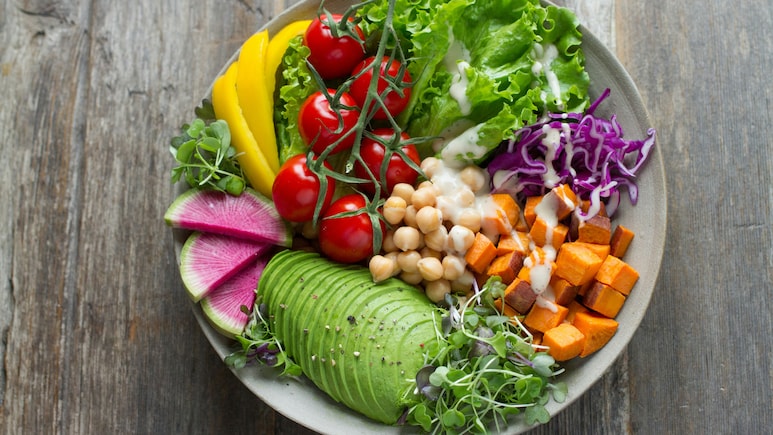
Vegetarian and vegan diets are steadily gaining popularity as more and more health-conscious individuals are choosing plant-based alternatives to boost their overall well-being.
Celebrities like Virat Kohli, Amitabh Bachchan and Genelia D'Souza have also adopted this lifestyle. Creative recipes have come to the fore, while restaurants and cafes are expanding their menus, offering a myriad of vegetarian and vegan options.
With that being said, one question still remains: can plant-based diets fulfil nutritional requirements?
The Study
Weighing in on the matter, experts from France's Agency for Food, Environmental and Occupational Health & Safety (ANSES) have published extensive research, evaluating the health benefits, potential risks and nutritional considerations of these food practices.
The term vegetarian refers to diets that do not include the consumption of any type of animal flesh, be it meat, fish or seafood.

Vegetarians are less likely than non-vegetarians to develop certain diseases. Photo: Unsplash
Within this category, there are variations such as lacto-ovo vegetarians and vegans. Those belonging in the lacto-ovo category eat eggs and dairy products. Meanwhile, vegans take it a step further by eliminating every type of animal-based food.
The research showed that people following a vegetarian diet are at a lower risk of developing Type 2 diabetes than those who prefer non-vegetarian dishes.
Additionally, the research observed that vegetarians are less likely than non-vegetarians to develop certain diseases such as ischaemic heart disease, ovulation disorders, certain types of cancer (prostate, stomach, blood) and certain ophthalmological and gastro-intestinal diseases.
The Risks
There are also some potential risks, claimed the study.
People actively following a vegetarian or a vegan diet are at a greater risk of bone fractures and hypospadias (a congenital malformation of the urethra).
When it comes to nutritional value, vegetarians lack essential nutrients like iron, iodine and Vitamins B12, D, and omega-3 fatty acids (EPA, DHA). They also have a poorer calcium and phosphorus balance than non-vegetarians.
ANSES also released a dietary guideline for adult vegetarians, which includes consuming fruits, vegetables, pulses, bread, oilseeds, fibre, milk, cheese and brewer's yeast, to name a few. The study also emphasises the need to use supplements if and when required to meet the nutritional requirements.
Track Latest News Live on NDTV.com and get news updates from India and around the world

